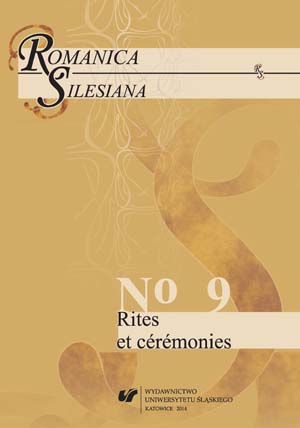“La sposa non conta”. Il matrimonio islamico tradizionale secondo Oriana Fallaci
“The Bride Doesn’t Count”. Islamic Traditional Marriage According to Oriana Fallaci
Author(s): Ewa Tichoniuk-WawrowiczSubject(s): Literary Texts
Published by: Wydawnictwo Uniwersytetu Śląskiego
Keywords: Fallaci; Islam; child bride; marriage; rites of passage
Summary/Abstract: Marriage is one of the most important rites of passage and has a very rich rituality. The wedding ceremony is treated as a necessary consecration besides a formalization (legal, social and/or economic and financial) of a relationship between two people and then the legitimation of offspring born into this union. The wedding then becomes also a prerequisite for sexual intercourse. The sacred aspect of marriage is evident in the fact that it is treated as the fulfillment of a divine precept. The married life in Islam is viewed as a religious obligation as well. However, it is not a religious rite, nor a sacrament, but a contract between families that expect the creation of a new social group and the perservation of the bloodline, and which recognizes the man as the head of the family. The hierophany of that passage disappears in the mercantile context, in which the bride just has to be a mother of sons and — if she is not — she can be repudiated. The negative and dehumanizing view of Islamic marriage, seen as a monoandric, polygynous institution, is particularly emphasized by Oriana Fallaci in her various texts, starting with her second book, "The Useless Sex: Voyage around the Woman" (1961), and ending at the penultimate collection of her famous interviews, "Interviews with Power" (2009). Fallaci highlights the reification of Muslim women, the violence against them, their submission and dependence on men, their questionable condition in the family and society, the problem of child brides, infibulation, and the obligation of the full veil.
Journal: Romanica Silesiana
- Issue Year: 2014
- Issue No: 9
- Page Range: 88-99
- Page Count: 12

